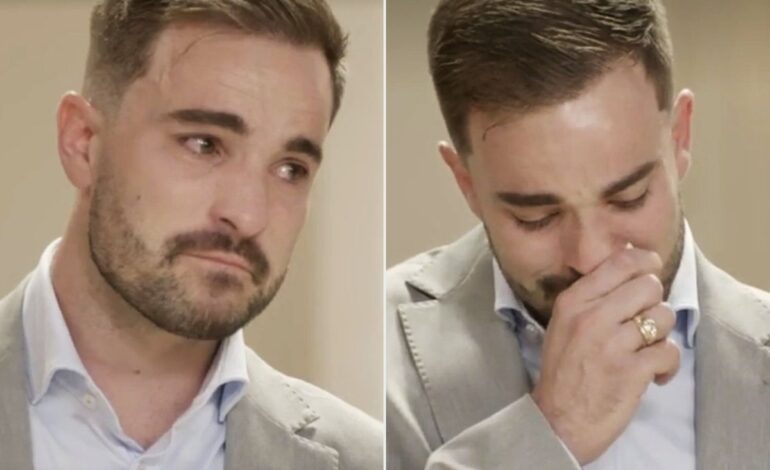Conner Leavitt’s Poetic Reckoning: From Childhood Trauma to Triumph

Beneath the hush of a reality-TV reunion, a fragile truth unfurled like moonlight on still water. In a moment that felt more like an elegy than a confession, Conner Leavitt, known for his role on Secret Lives of Mormon Wives, bared his soul before wife Whitney and the world. July 1 saw an unaired clip from season one surface, revealing that the smiling husband and father of three once carried a secret wound: he was sexually abused as a child.
Leavitt’s voice quavered with a sincerity that shone brighter than any studio spotlight. Wrestling with his addiction to pornography and a brief dalliance on a dating app, he admitted, “I needed to get help, so we started going to therapy… and I knew why—something I have only shared with Whitney and my therapist and my family.” The memory he had long buried emerged in tears: “When I was a little boy, I was raped. And when I was finally honest with that emotion and that memory, everything made sense.” This revelation, corroborated by E! Online and People Magazine, painted the silhouette of a man who transformed raw vulnerability into the scaffolding of his own renewal.
From confessional sobs to a handwritten statement read aloud for fear his emotions might betray him, Leavitt mapped the geography of his pain. “That was a very difficult part of my past and something I’ve worked hard to heal from,” he confessed. “For me, those experiences shaped me and developed really destructive habits, but they don’t define who I am today. What matters is how we grow, how we find resilience and how we support each other moving forward.” His words, both delicate and defiant, resonated far beyond the soundstage, offering solace to countless others who carry unseen scars.
Even co-star Mikayla Matthews, who shared her own history of abuse on the series, received a call from Leavitt, urging her toward therapy and solidarity. In that gesture lay the heart of his metamorphosis: a man once broken now weaving safety lines for others to follow. The reunion table, typically reserved for tea and tension, instead became an altar of empathy and the birthplace of new beginnings.
Under the relentless glare of cameras and gossip columns, Conner Leavitt’s journey reminds us that confession can be a form of poetry, pain the ink, and healing the most transcendent verse. A bittersweet ending, or merely the beginning?
Sources: Celebrity Storm and E! Online, People Magazine
Attribution: Creative Commons Licensed




